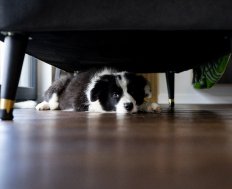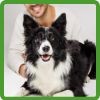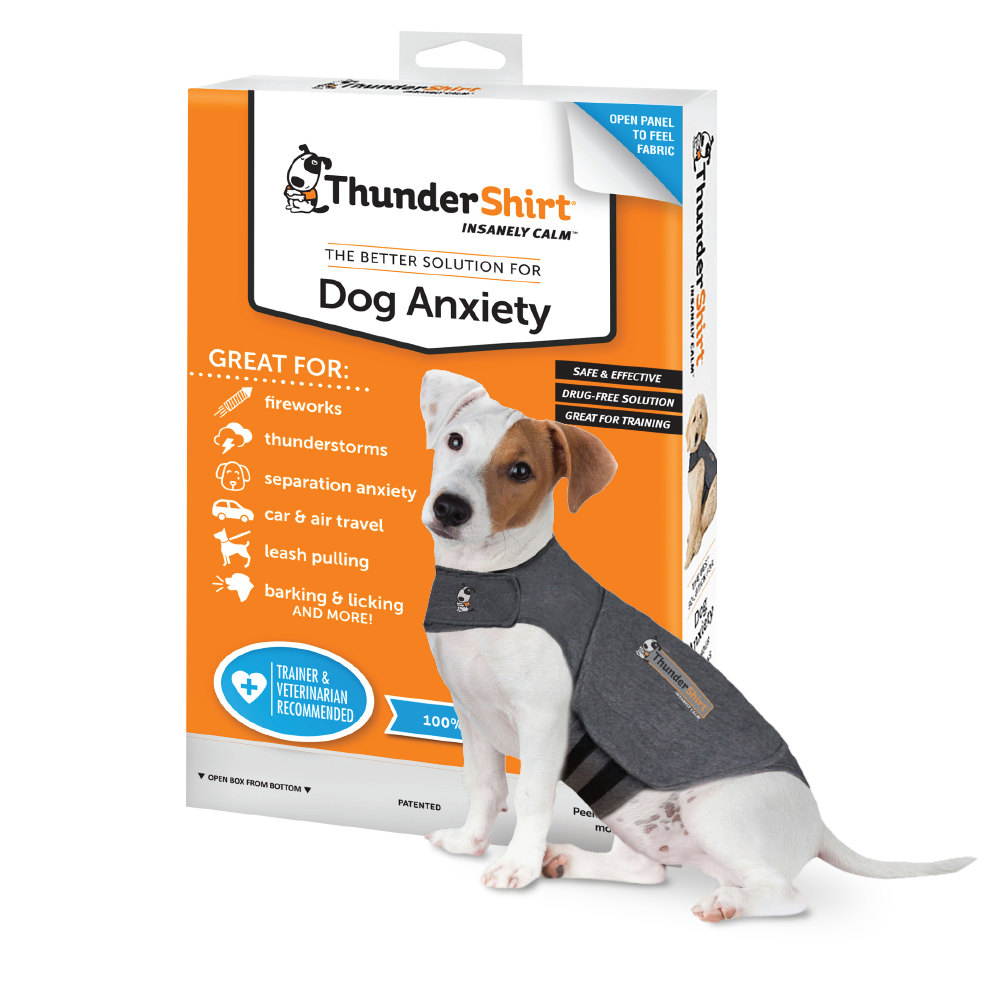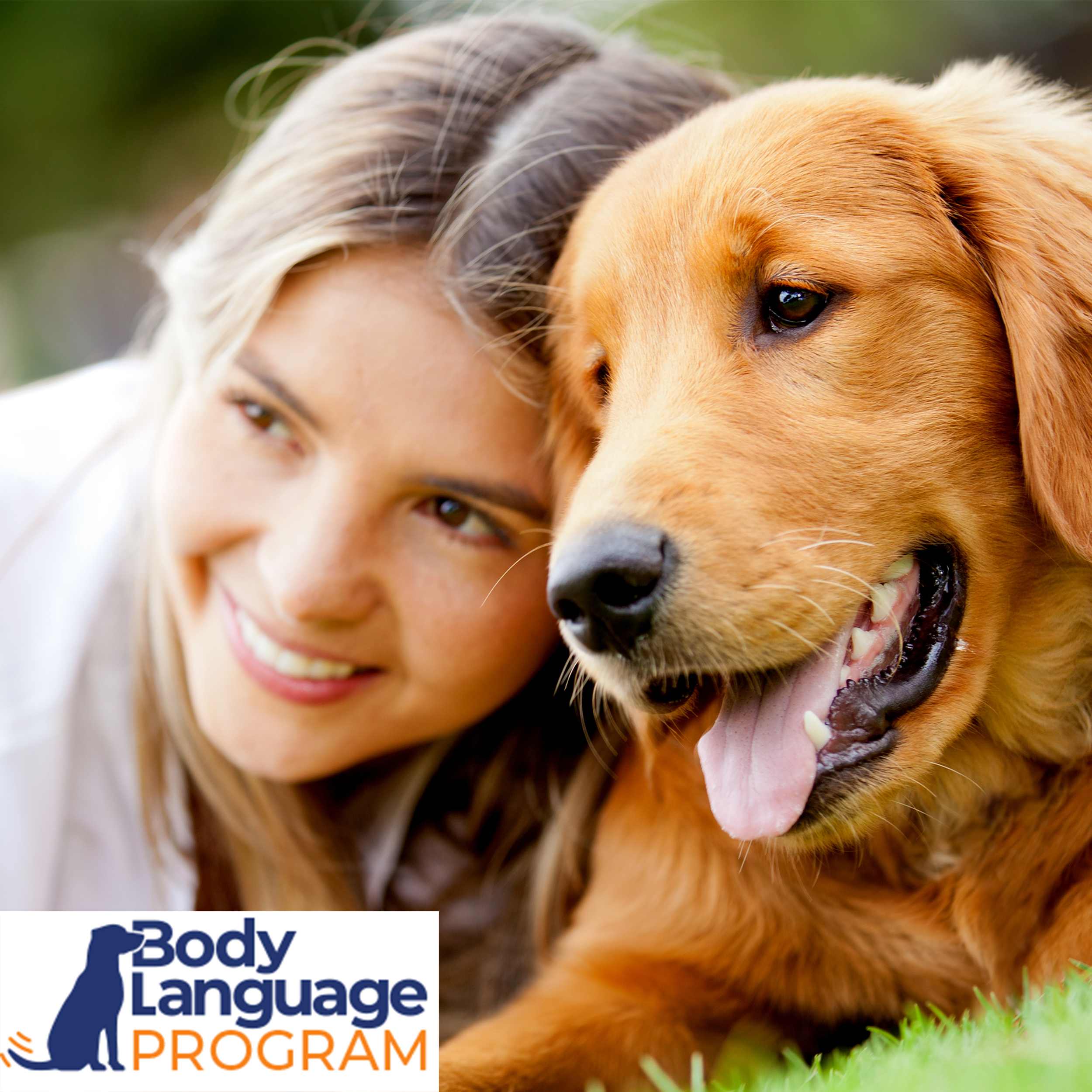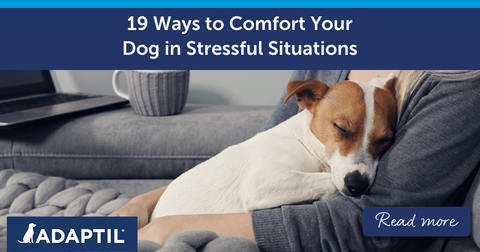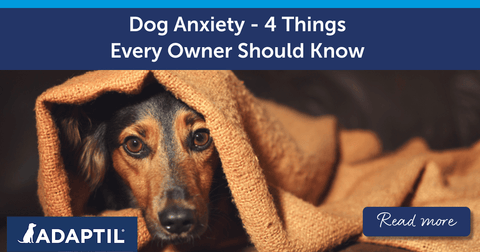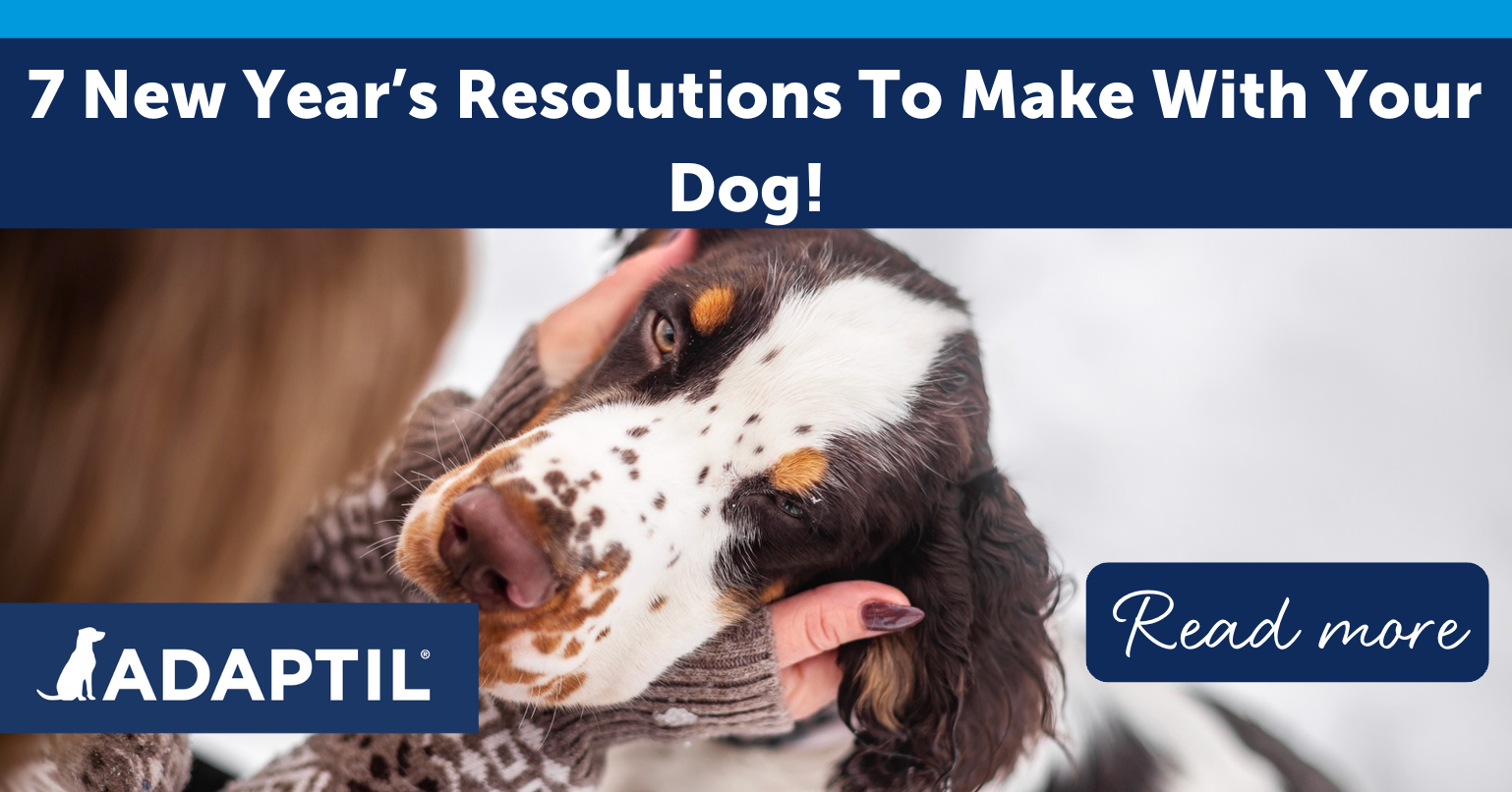
7 New Year's Resolutions to Make With Your Dog!
As we move into a new year ahead and set goals and resolutions to improve our health and wellbeing, we should be making similar ones to help our dogs! So what New Year's resolutions can you set with your pooch to support them and help you grow your relationship?
Resolution 1: Spend time together
Dogs love human company. They love fuss, companionship, playtime, reward-based training, and of course, lots of walks!
Playing games with your dog is a great way to spend time with them. A game of fetch with a ball or frisbee when walking will keep them fit and you will be reinforcing your recall training at the same time. Introducing new toys when they are at home, like a food puzzle or a Kong, or even hiding some treats in a corner of the room for them to find will help to keep them mentally fit too.
And when you're done having fun together, make sure your dog has their own space to retreat to (a warm cosy corner where they will feel safe). It's important that they are happy to spend time alone while you are busy elsewhere in the house - it can help your dog to cope when you need to leave them alone in the house.
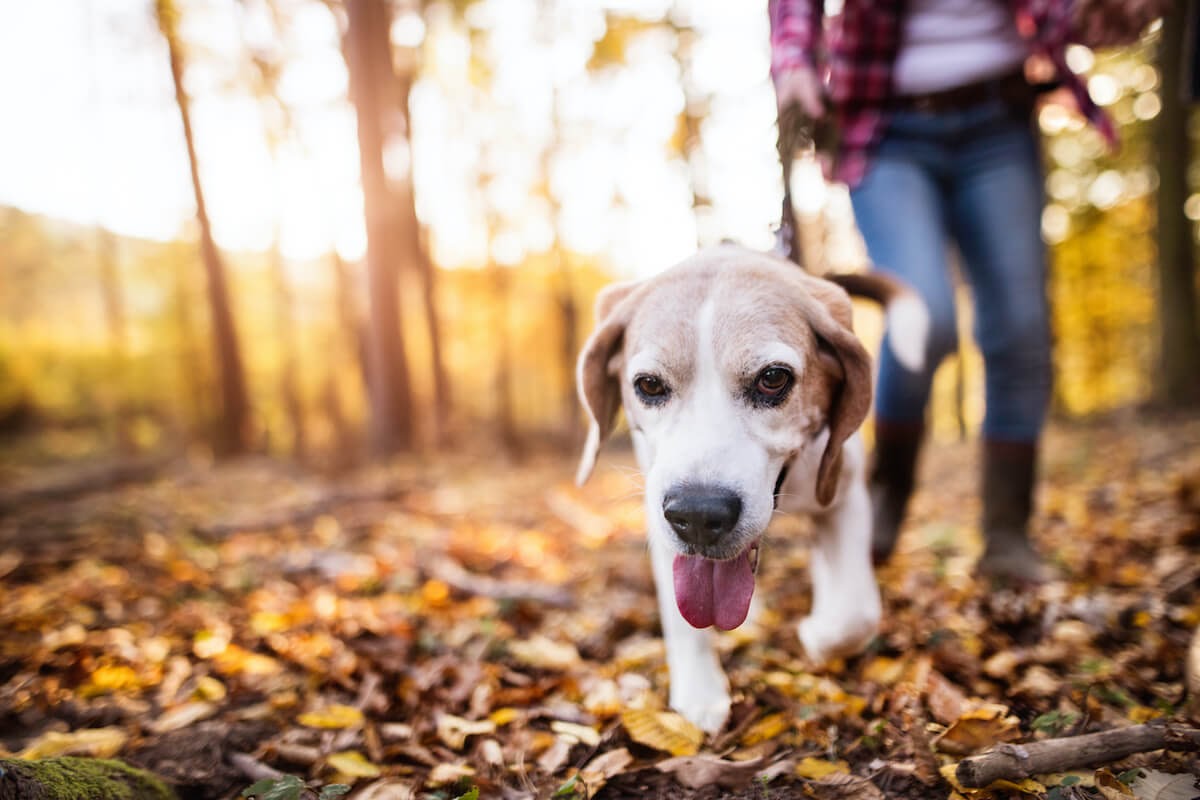
Resolution 2: Make sure they have plenty of exercise
Regular exercise is not only important for your dog's physical health, it is also great mental stimulation. There's nothing more rewarding than watching your dog bound around a field playing and investigating new smells and sounds. Walking is also a great way to practise the training and recall you have been working on, and strengthen the bond between you.
To enhance your New Year walks, why not try to take different routes, maybe through woods or to the seaside, or even join a dog walking club when possible.
Resolution 3: Learn more about your dog's body language
Dogs do understand what you are saying to them - after all, with good training, they will 'sit', 'lie down', 'fetch' on cue. And although dogs don't speak like humans, they can certainly let you know what they are thinking! A wagging tail normally means they are happy or excited, staring eyes with no blinking may mean they are concerned, or if their ears are upright it could mean they are feeling alert and listening for something; so it's important to know what they are thinking, particularly if they are showing signs of stress.
Getting to know their body language - and understanding when they are happy, stressed, feeling playful, or wanting to go out to the toilet - and being able to respond to them - is all part of developing a relationship with your best friend.
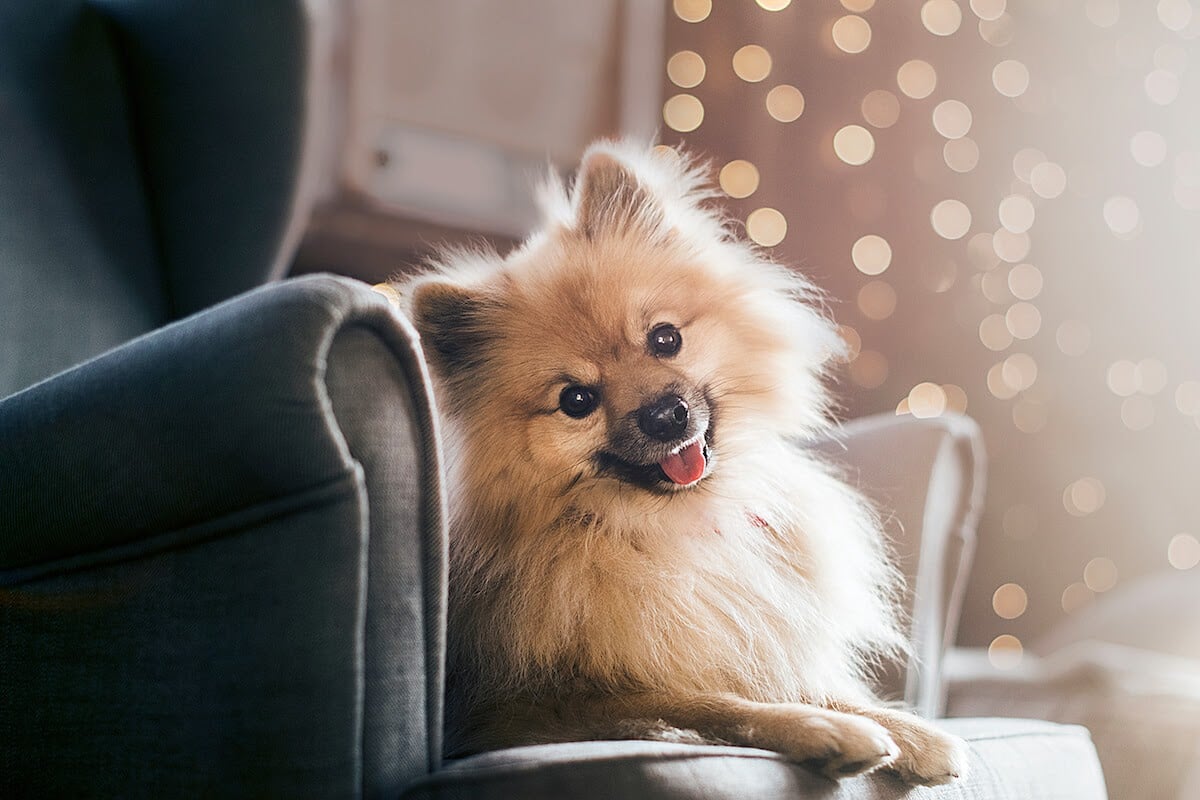
Resolution 4: Get a little help!
Thanks to your new doggy body language skills, you'll be able to notice when your pet is feeling fine, but also, whenever they feel a little stressed. It's important to recognise when your pet needs a little extra help, so you can remove any stressors.
Making ADAPTIL one of your new year's resolutions is a great way to support your dog! Sending 'comforting messages' to dogs to help them feel reassured and stay confident in all situations, ADAPTIL can help your dog have a happy new year!

Resolution 5: Give your pet food treats - but sensibly!
We all love to spoil our pets, but (especially in the new year!) it's healthy to make sure we don't overdo the calorific treats!
We use treats when training and rewarding our pets, so the association between pleasing you and receiving a tasty morsel in return is an important incentive for your pooch.
By all means give your dog their favourite dog biscuits or chews, but also try some other options like fruit and vegetables - in moderation, your dog may like to try apples (with the pips removed), carrots, bananas and peas.
However, not all foods are good for your dog. AVOID chocolate, grapes, raisins, onions, garlic and leeks; these are toxic to dogs and if eaten by mistake, you need to contact your vet immediately.
Resolution 6: Training for healthcare
It's important that your pooch is kept in tip-top condition, so looking after their coat, nails and teeth should be built into your daily routine.
Not all dogs like being groomed so, if this is the case with your dog, start introducing the brush gradually, allowing them to sniff it and gently touching their body in an area you know they like being stroked. Keep the sessions short to start with, gradually increasing them until they are happy to have you grooming them all over their body. Always be aware of their body language and if there's any sign they are uncomfortable, stop immediately and try again at another time.
Take a similar approach when clipping their claws and brushing their teeth. Although road walking will help to keep a dog's claws trim, this won't necessarily be the case if you walk your dog regularly in the park on soft grass, so keep checking to ensure their nails don't get too long. Long nails are prone to splitting and could become infected. They also put pressure on the wrong areas of the foot which can cause discomfort, and in turn your dog may move differently, which can cause joint pain. Additionally some surfaces may be more slippery with longer claws. Don't forget to check their dew claws too!
You need to buy doggie toothpaste like Logic Gel to ensure your pooch maintains a healthy mouth; never be tempted to use human toothpaste; many human toothpastes contain Xylitol, an artificial sweetener that is toxic to dogs.
Follow these healthcare tips, and you'll have the smartest pooch in the park!
Resolution 7: Get them used to visiting the vet
How many dogs do you see wanting to retreat when they realise they are visiting the vet? They seem to have an extra sense, but it's more likely that they have formed an association with having inoculations or treatment - which they didn't enjoy.
Make sure you arrange regular health checks with your vet. Don't just wait until your pooch needs treatment; regular health checks not only ensure your pet is in great shape, but are a perfect opportunity to discuss any changes in your pet's behaviour with your vet.
If your dog finds trips to the vet challenging, try to create a positive association with your visits. Speak to your vet about arranging trips where all that happens is that your dog is greeted and treated by the clinic staff. These visits help by building in some positive associations with the clinic.
These resolutions will help you to have a happy, healthy and exciting new year together with your dog! But have you added any others, or other new year plans to your list? We always love to hear your ideas - Add them to the comments below!
If you’d like to know more about how to help your dog live their best life, check out the rest of our blogs online! You can also stay up to date with all the latest tips and advice by signing up to our newsletter.


